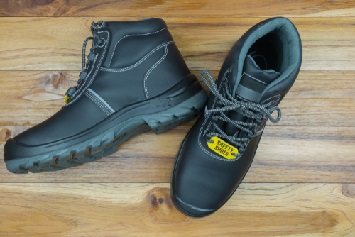A state appeals court recently affirmed that California employers are not required to pay for slip-resistant shoes their employees must wear for work. It’s not just in California, though—similar exemptions exist at the federal level. If you require such footwear for your facilities staff, read up on the details of the issue here.

JARIRIYAWAT / Shutterstock.com
Krista Townley, a former server at a Stockton, California, BJ’s Restaurant sued her employer for reimbursement for the purchase of black canvas, slip-resistant shoes. Townley sued her employer under California’s Private Attorneys General Act of 2004 (PAGA), claiming the shoes were a necessary expenditure directly related to her duties.
She asserted in her original suit that the shoes were personal protective equipment (PPE) required by California’s workplace safety standards. California requires employers to provide PPE. The federal Occupational Safety and Health Act and other states have similar requirements.
However, there is no specific PPE requirement for slip-resistant shoes. She abandoned the safety claim in her appeal of the trial court’s granting summary judgment for BJ’s.
Black, Slip-Resistant Shoes
BJ’s corporate safety policy required employees to wear black, slip-resistant, closed-toe shoes to avoid slip and fall accidents. Several facts undercut Townley’s claim for reimbursement:
- BJ’s company policy was not established to satisfy any state or federal workplace safety requirement for PPE;
- Company policy did not require employees to purchase any specific brand, design, or style of shoe;
- Company policy did not prohibit employees from wearing the shoes outside of work;
- Shoes that satisfied company policy could be worn for work at other restaurants; and
- Company policy and practice did not require reimbursement to employees for shoe purchases.
Townley also argued in her appeal that BJ’s failed to prove it was not required to reimburse her for the shoes. The appeals court decided the trial court correctly granted summary judgment to BJ’s Restaurants. The appeals court also ordered Townley to pay BJ’s court costs.
The shoes were not part of a uniform, not specific to the job at BJ’s Restaurants, and were generally usable in a restaurant occupation, the court concluded.
Existing Policy Outside of California
Similar exemptions exist in federal Occupational Safety and Health Administration (OSHA) regulations and agency directives. The regulations identify specific items for which employers are not required to pay. These include steel-toe boots and shoes that workers can wear when off duty.
“The employer is not required to pay for non-specialty safety-toe protective footwear (including steel-toe shoes or steel-toe boots) and non-specialty prescription safety eyewear, provided that the employer permits such items to be worn off the job-site,” according to 29 C.F.R. §1910.132(h)(2).
Employers are not required to pay for nonspecialty, slip-resistant shoes that can be worn as ordinary clothing, the agency said in a directive for enforcement personnel. Employers also are not required to pay for everyday clothing; logging boots; metatarsal shoes or boots; ordinary clothing, such as coats or jackets to protect employees from the weather; or PPE the employee has lost or intentionally damaged.
The U.S. Court of Appeals, 9th Circuit, dealt with the identical issue in 2015 and ruled that Denny’s, Inc., was not required to reimburse its employees for the cost of slip-resistant shoes.
